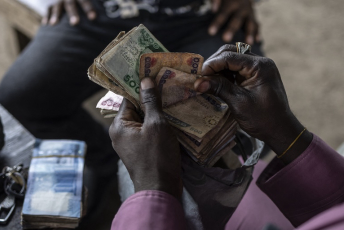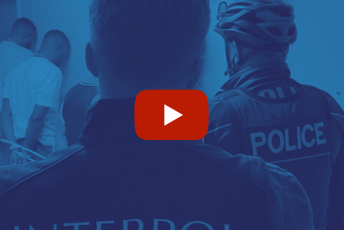Gauteng health department official Babita Deokaran was a known whistle-blower in an R332-million personal protective equipment scandal at the Gauteng health department. She was gunned down in front of her home in Johannesburg in August 2021. Her politically-motivated murder was to silence her as a whistle-blower.
The six men accused in Deokaran’s 2021 murder are all linked to the taxi industry, either as minibus taxi owners or drivers.
Earlier that year, Mduduzi Madikizela, a 47-year-old African National Congress (ANC) member and political activist, was assassinated at his home in South Africa’s Eastern Cape province in April 2021. In a contested ward-level election, he was opposing the incumbent, Lucky Mbuzi.
Mbuzi now stands accused of masterminding Madikizela’s murder, along with three accomplices believed to be hired hitmen.
Targeted killings in South Africa are not limited to political motives though. Law enforcement officers, lawyers, judges and prosecutors working on criminal cases, taxi industry members, ordinary citizens and criminal gang members also fall prey to assassinations.
Targeted killings form part of a professionalised industry of violence for hire that has become entrenched in South Africa’s criminal ecosystem. Here the minibus taxi industry in the KwaZulu Natal (KZN) province provides a recruitment pool of hitmen for hire, so too established criminal gangs, and state security and police officials. Evidence indicates that targeted killings are an organised criminal activity.
There are significant negative consequences of these killings. Assassinations of political aspirants or civil servants undermine state credibility and the rule of law, and the killing of professionals leads to the loss of expertise in their respective fields.
Added to this, targeted killings create an environment of fear, silence communities, and destabilize society. High levels of impunity for perpetrators embolden killers and kingpins to control through violence and continue with their organised criminal activities.
Given this, tracking assassinations in South Africa over time and monitoring whether a distinct set of actors can be identified is an important component of understanding organised criminal behaviour as well as focusing on more comprehensive responses from the criminal justice system.
A total of 1 965 assassination cases were recorded between 2000 and 2021, with a notable peak in 2018 due to an increase in taxi-related violence and organised crime hits in the Gauteng and Western Cape provinces. These numbers indicate that assassinations have become characteristic of the organised crime landscape in South Africa.
The GI-TOC’s report from the region indicates that taxi-related killings constitute the majority of cases recorded. South Africa has a notoriously violent taxi industry, characterised by fierce competition between taxi associations and rivalries over lucrative routes. Solutions to disputes over lucrative routes are often sought through violence and intimidation, resulting in high casualties. Findings show particularly high rates of assassinations in KwaZulu-Natal (KZN) province, owing both to political factionalism and the taxi industry’s power struggles over operating road routes.
Politically, KZN is a highly contested and historically volatile province. It is also an ANC political stronghold and exerts significant influence on determining leadership positions in the party. Competition for lucrative local government positions that provide access to state tenders and contracts, sometimes among different ideological factions in the ANC itself, has been a driver of targeted killings of political aspirants and other party members. This was established by the Moerane Commission of Inquiry investigating political killings in KZN.
This commission of inquiry established in 2018 to investigate political murders in KZN concluded that the primary motive for this crime was intra-political conflict, the problem of patronage networks and taxi conflict. Its recommendations however seem out of touch with the reality on the ground. The commission naively urged political parties to educate their members on peaceful conflict resolution and urged the state to depoliticise the public service sector to lower political patronage networks. These recommendations have not been implemented, and the ANC is currently litigating against any attempts to end its cadre deployment policy that facilitates political patronage.
In addition to this commission, the South African Police Service has established a task team dedicated to responding to political killings in KZN. While this has reportedly led to some arrests and ongoing investigations, no official data is available on the number of arrests or subsequent prosecutions. Assassinations in the province continue unabated.
South Africa has a well-developed market for violence with a pool of readily available hitmen for hire. Despite evidence of an increase in targeted killings, there isn’t a separate category for reporting these in annually reported police crime statistics.
Introducing this specifically in the police’s annual performance plans that are presented to parliament could serve as an important first step to obliging the police to capture targeted killings specifically in case records. This would establish evidence of the scale and scope of this crime. Ideally this would lead to focused investigations, arrests and convictions in these murders. Yet the power and financial gains across the criminal value chain are a stranglehold against such proactive responses.
Added to this are systemic stumbling blocks including weak or erratic application of the rule of law, limited political will to address this crime, and a ready supply of hitmen for hire who have little fear of legal consequences. These factors are at the root of and enable targeted killings.
Civil society’s voice, along with consistent data collection on this crime, is essential to informing the calls to quell this growing organised crime and hold key institutions to account.
Rumbi Matamba, Analyst, Global Initiative Against Transnational Organized Crime









